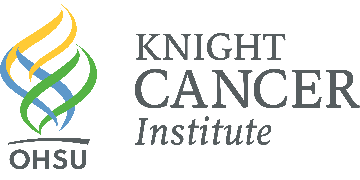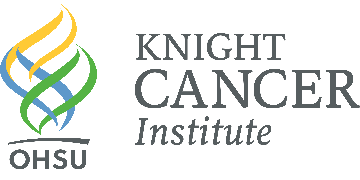Professor of Biomedical Data Science (Assistant, Associate, and/or Professor Level)
Employer
Oregon Health and Science University - Knight Cancer Institute
Location
Portland, Oregon
Salary
Commensurate with education, experience, and internal equity
Closing date
Apr 22, 2024
|
Department Overview |
The OHSU Knight Cancer Institute (KCI) Known as one of the pioneers in personalized cancer medicine, KCI at OHSU is an international leader in research and practice of cancer prevention, detection, and treatment, driven by its mission to end cancer as we know it. KCI envisions a world freed from the burden of cancer by working in a collaborative and team-based environment to make bold advances in understanding cancer biology, detection, treatment, and survival. The KCI is an NCI-designated Cancer Center. It is also the headquarters for the NCI’s SWOG collaborative, a cancer research cooperative group that designs and conducts multidisciplinary clinical trials to improve the practice of medicine for preventing, detecting, and treating cancer, and to enhance the quality of life for cancer survivors. KCI is home to world-renowned leaders in oncology: Brian J. Druker, MD, Director of the OHSU Knight Cancer Institute and JELD-WEN Chair of Leukemia Research, made one of the most celebrated cancer discoveries in a generation—the targeted drug Gleevec; Gordon Mills, MD, PhD, one of the most cited medical scientists, joined the Knight in 2018 to lead precision oncology; and Sadik Esener, PhD, the founding director of the Cancer Early Detection Advanced Research Center (CEDAR) which is pioneering novel ways to eliminate cancers at the earliest stages.
Public support and private philanthropy, including a record-setting $1 billion fundraising campaign, with $500 million donated by Phil Knight and his wife, Penny, have provided crucial resources to advance its progress. In 2018, KCI completed the Knight Cancer Research Building, a 320,000-square-foot building with a unique design that will bring together people from different scientific disciplines with the goal of accelerating research progress. With a capacity of 650 occupants, the building houses the majority of researchers contributing to the Knight Cancer Institute’s mission including the Cancer Early Detection Advanced Research (CEDAR) Center.
Division of Oncological Sciences (DOS) The primary mission of DOS is discovery-based oncology research. DOS research also spans the translational landscape to reduce the burden of disease across the cancer continuum. DOS forms a critical nexus for cancer researchers, the OHSU clinical enterprise and the broader population we serve. As the research and educational branch of KCI, DOS is highly integrated with innovative patient-oriented KCI focus areas and population science approaches. Through a better understanding of how cancer initiates, progresses and invades, new strategies will be developed to prevent, detect and treat this disease. A foremost priority is to experimentally decipher transitions from normal to cancer, cancer to metastasis and metastasis to resistance. Translation of our findings will be facilitated through our high risk clinics, unique clinical trials, a Technology Accelerator and a robust program in medicinal chemistry and preclinical development to find new therapies to help our patients and enable new start-up ventures. Additional efforts aim to better understand the unique factors that contribute to cancer prevention and control within populations, particularly those at risk for cancer health disparities. Translation of these findings to develop, deploy and implement interventions in clinical and community practice can advance healthcare systems, policies and public health.
DOS is comprised of non-clinical faculty, trainees and staff dedicated to basic, translational and population-based research that supports the strategic vision of the Knight Cancer Institute. The division is organized around four areas: (1) Precision Systems Oncology. It includes Precision Early Detection through the Cancer Early Detection Advanced Research (CEDAR) Center (CEDAR) and Precision Oncology through the SMMART program (SMMART). Both programs rely on the integration of emerging capabilities in imaging and OMICS technologies, innovative model systems, cohort building and unique clinical trials to generate novel insights, development and translation of discoveries to practice; (2) Cancer Data Science (includes Computational Biology, Bioinformatics and Biostatistics); (3) Chemical Biology and Experimental Therapeutics, for translating basic research into drug discovery and development projects, and (4) Cancer Population Science, which studies cancer etiology, identifies environmental, behavioral, social and genetic factors associated with cancer risk and outcomes in individuals and communities.
|
Function/Duties of Position |
The Center for Biomedical Data Science (CBDS) at the Knight Cancer Institute (KCI) at Oregon Health and Science University (OHSU) is searching for multiple tenured or tenure-track faculty positions at all ranks (Assistant Professor, Associate Professor, and/or Professor) in the area of Biomedical Data Science. Faculty will be members of CBDS with primary tenure home in the Division of Oncological Sciences (DOS) at KCI. A secondary appointment in a different unit at OHSU is possible depending on the candidate's discipline and research focus.
The newly founded CBDS, as a nexus for research in data science at OHSU, is dedicated to advancing precision health in general, and precision early cancer detection and therapies in particular, by analyzing large, complex, multi-modal multi-scale data through the development and implementation of novel computational analytical tools and methods. The data science goals include identifying biomarkers associated with response and resistance to therapy; modeling etiologic causes of cancer; modeling the development and progression of cancer; organizing and processing large data resources to create harmonized datasets; and mining datasets for novel subtypes of diseases. The field analyzes all kinds of cancer data, including omics, anatomical imaging to molecular imaging to nanoscale imaging, cellular and pathway interactions, electronic medical records, and published literature. A key area of focus is integrating datasets, such as combining public and private datasets or merging data across modalities, and doing novel analyses on integrated datasets.
To serve these goals, CBDS seeks interdisciplinary scholars whose work spans diverse areas, including but not limited to: machine learning, computer vision, natural language processing, AI-enabled health, computational biology, systems biology, bioinformatics, biostatistics, dynamic modeling, responsible and interpretable AI, multi-scale multi-modal data integration, and data analytics and visualization.
| Responsibilities |
Faculty members at CBDS are expected to develop independent research programs that attract external funding; supervise students, postdocs, and staff in their area of research; teach courses at the graduate level; and participate in service to CBDS, KCI, university, and discipline. A commitment to translation, collaboration and/or entrepreneurial activities will be reviewed especially favorably.
This position reports to (supervisor):
Brian Druker, MD, Head, Division of Oncological Sciences and Director, Knight Cancer Institute, OHSU
Sadik Esener, PhD, Interim Director, Center for Biomedical Data Science, Knight Cancer Institute, OHSU
|
Required Qualifications |
To qualify for this role, you must have either a PhD or MD/PhD, relevant postdoctoral research experience, and a strong record of research accomplishments that include publications in high-quality conferences or journals.
At the Associate Professor level, you must have an established and funded research program and demonstrated ability to mentor others.
At the Full Professor level, you must demonstrate a track record in building successful and sustained research programs, mentorship, and leadership, with a higher degree of external recognition and reputation. We encourage applicants from a wide range of backgrounds, including academia and industry.


